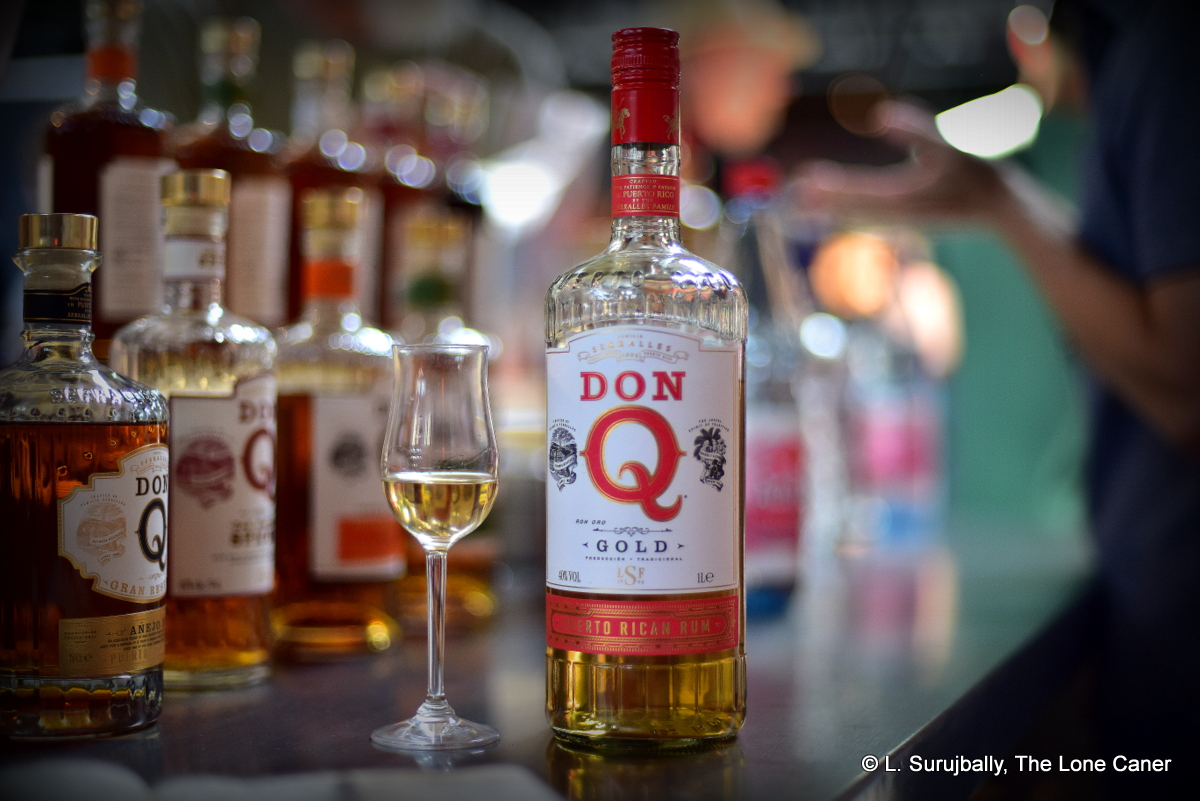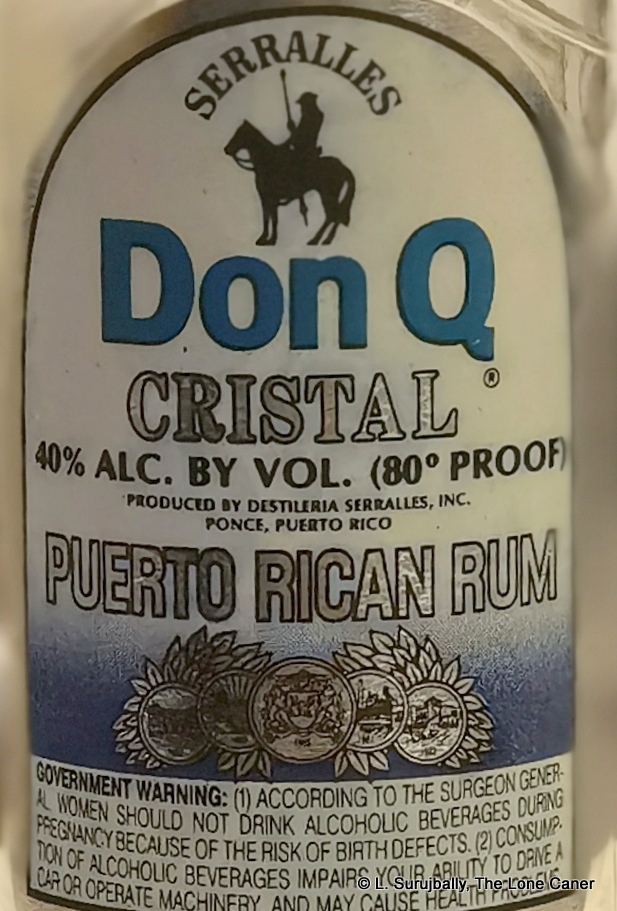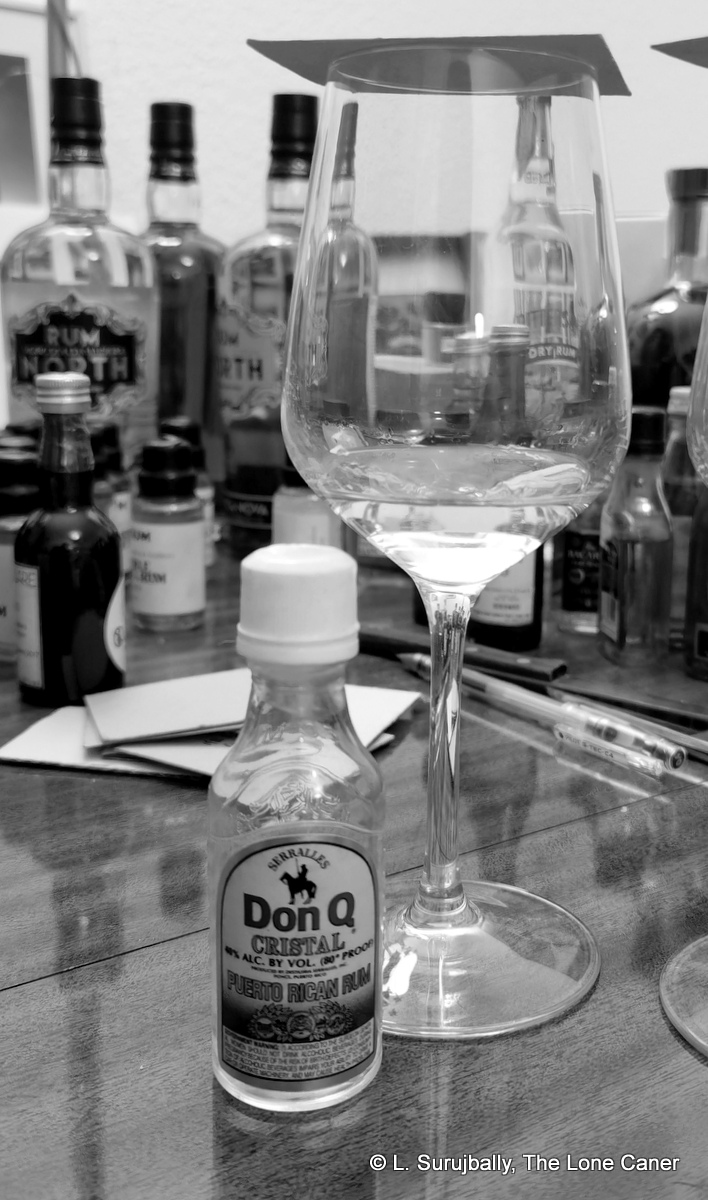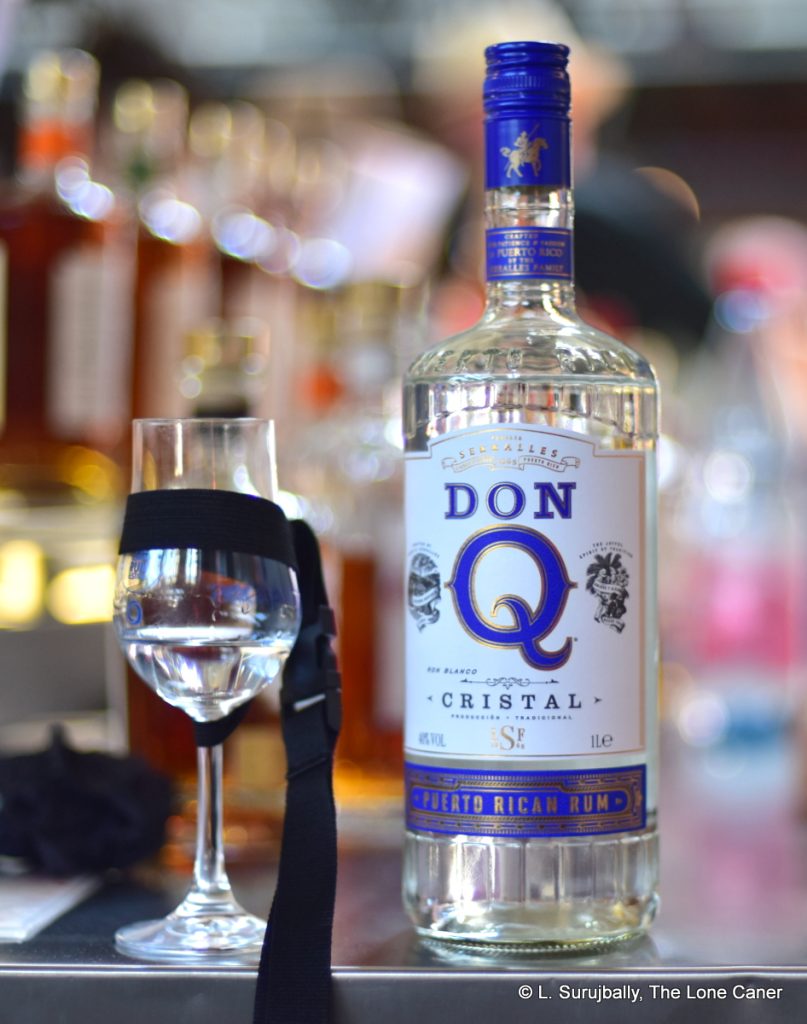As I remarked in the Don Q gold rum review not too long ago, the Puerto Rican producer, Distileria Serrallés, has three tranches of rums in its portfolio, up and down the value chain. There is the “traditional” range which includes the Gold, the white Cristal … and today’s subject, the overproof 151. These are mixing agents of a little ageing and are quite affordable. Then there are some flavoured offerings I ignore, and after that everything is lumped into the “Serrallés Collection” which has some older offerings, a spiced rum (oddly enough), a single barrel or two and some that are a bit fancier, with finishes and secondary maturations and so on.
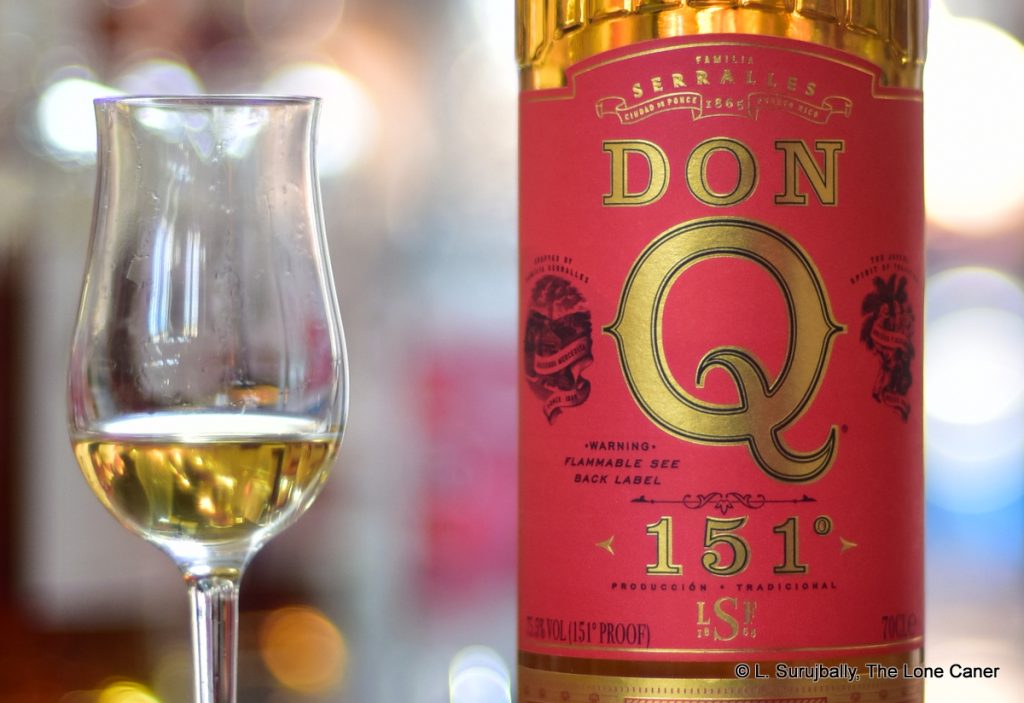 Whatever the type of rum that is being made, pretty much all of what they produce is short-fermentation, molasses-based, column-still product, with perhaps some pot still elements contained within to give some depth. The variations come from post-distillation barrel, blending and wood management, not earlier stages in the production process, which is par for Latin / Spanish style rons.
Whatever the type of rum that is being made, pretty much all of what they produce is short-fermentation, molasses-based, column-still product, with perhaps some pot still elements contained within to give some depth. The variations come from post-distillation barrel, blending and wood management, not earlier stages in the production process, which is par for Latin / Spanish style rons.
Here, while I have little to go on, I think it’s safe to assume that it’s all column still. The rum was aged “up to” three years in ex-Bourbon barrels and is consistently made, so of course it’s a blend. Unfortunately the website doesn’t tell me much about anything else, such as, for example, whether they filtered it before bottling, or added a touch of colour. I guess we have to take it as it comes.
So, the nose: because it’s 75.5% ABV, letting it stand so as to burn off the alcohol fumes is a good idea – once that’s done, it starts off unexpectedly soft before turning into a snarling tiger of a rum. It has sharp and sweet notes of marshmallows, smores mixed up with a sort of dusty cardboard and peeling wallpaper scent. Fortunately this is somewhat redeemed by caramel, cherries, strawberries and light red fruits, and of course there is a touch of vanilla and smoke from the barrel coiling around in the background.
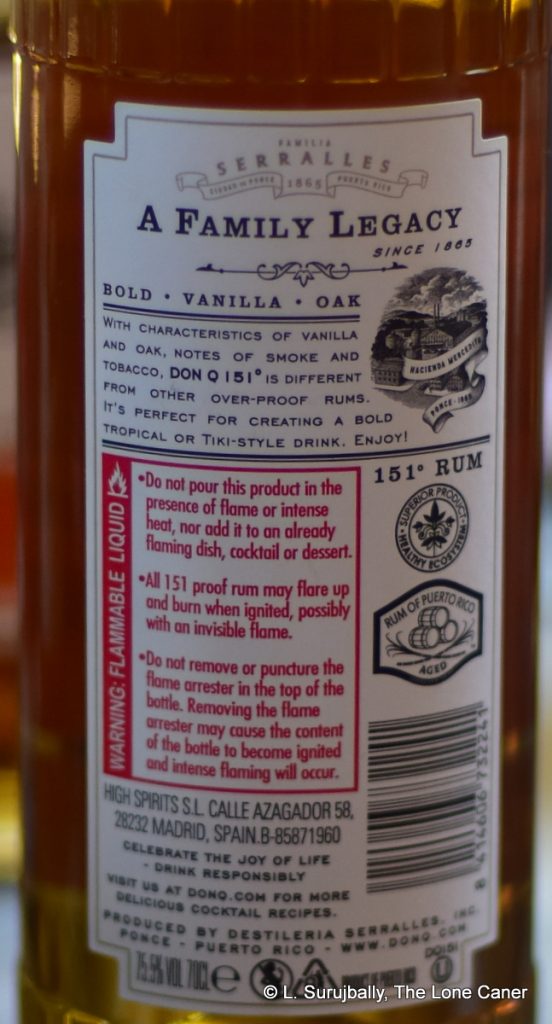 I can’t say the palate does much more than this. The light fruits continue to be the dominant note, and of course at that strength one sips with care, nothing new here. Still, there is a bit more here: light salt-caramel flavoured chocolate, breakfast spices and cinnamon to start, and also pears, cherries, vanilla and some candy floss. The finish, as one might expect, is long and lasting, quite hot, sharp and raw, which I guess we can expect. So nothing too complicated that might make one reach for one’s tasting wheel, just enough to stop it from being boring or indifferent.
I can’t say the palate does much more than this. The light fruits continue to be the dominant note, and of course at that strength one sips with care, nothing new here. Still, there is a bit more here: light salt-caramel flavoured chocolate, breakfast spices and cinnamon to start, and also pears, cherries, vanilla and some candy floss. The finish, as one might expect, is long and lasting, quite hot, sharp and raw, which I guess we can expect. So nothing too complicated that might make one reach for one’s tasting wheel, just enough to stop it from being boring or indifferent.
It’s actually not bad at all for an overproof 151 that’s made for the back bar. So many 151s that I’ve tried tend to be rather indifferently made, with the strength standing in for, oh, I dunno, an actual taste profile – one always gets the impression they take a sort of masochistic pleasure in doing the wildcat-in-the-face thing, y’know? They’re raw and pestilential, sharp, strong and have little to recommend them beyond that, but a little patience with this one makes the subtler notes come out of the woodwork in a way that’s quite pleasing … after one adjusts one’s tonsils.
So, taken as it is, the Don Q 151 is surprisingly good when rated to that standard: not a throwaway by any means. It’s more like Serralles shrugged, gave a finger to the establishment and said We’ll make ours in our own way and let’s see if we can’t raise the bar a bit. It’ll never be a top flight rum, or a connoisseur’s must-have, me-wantee wet dream, no – but it’s a solid rum of better than expected quality that I wouldn’t mind having in my own collection to sip at or mix now and again
(#1120)(80/100) ⭐⭐⭐
Other notes

